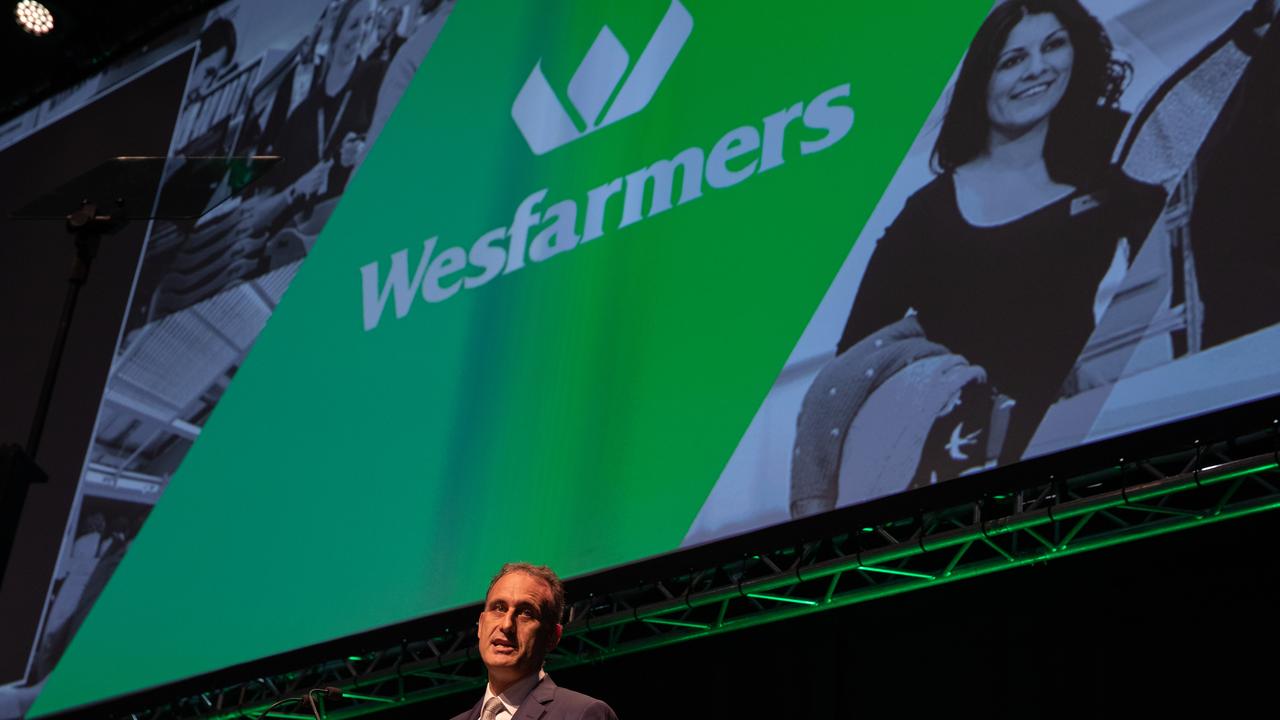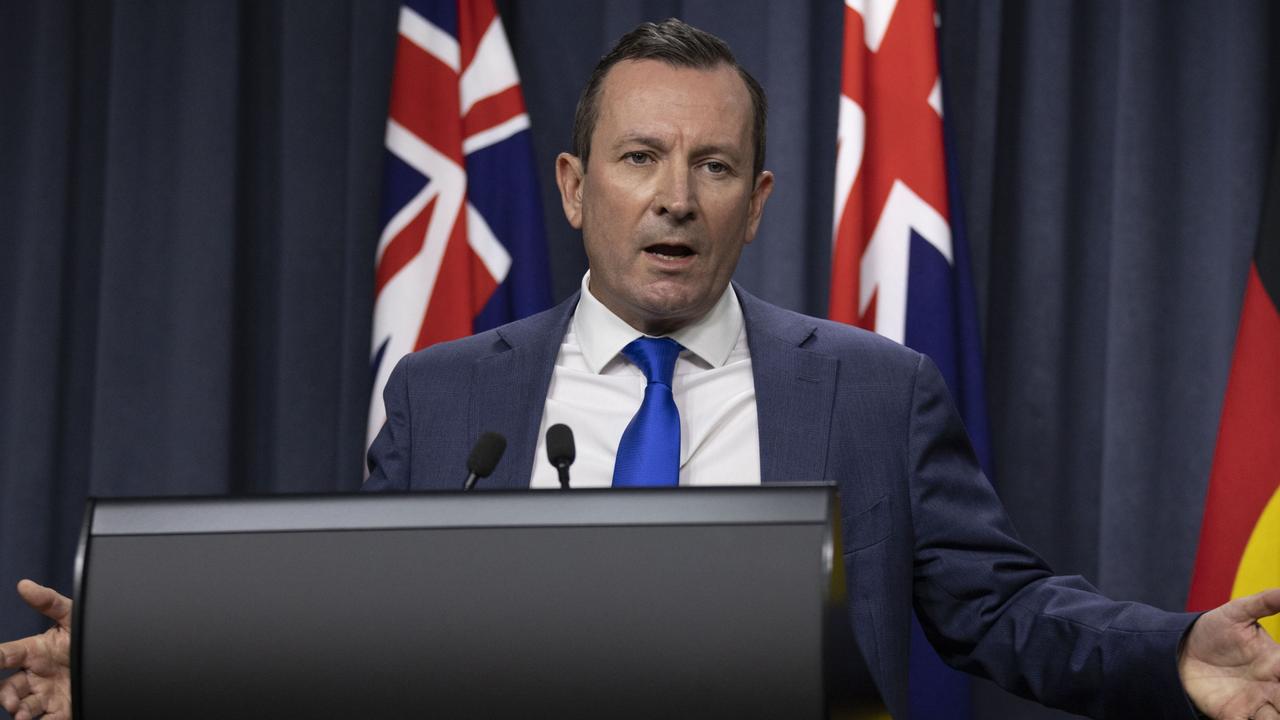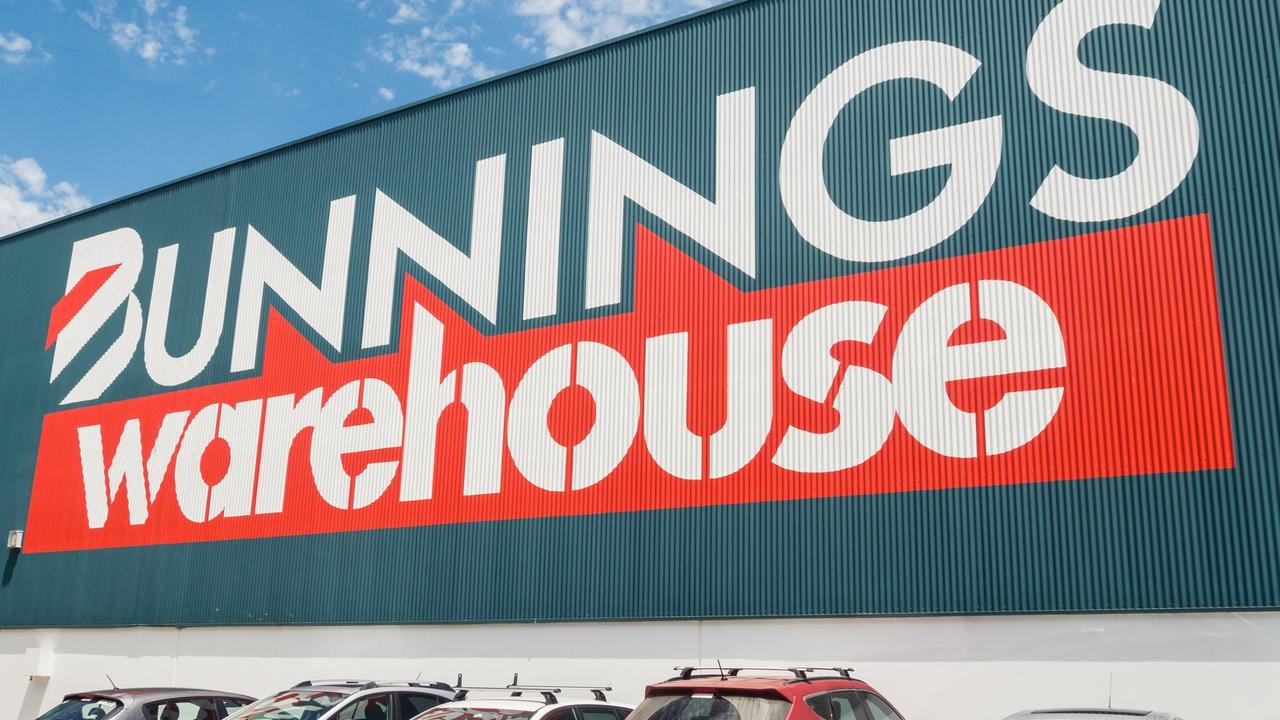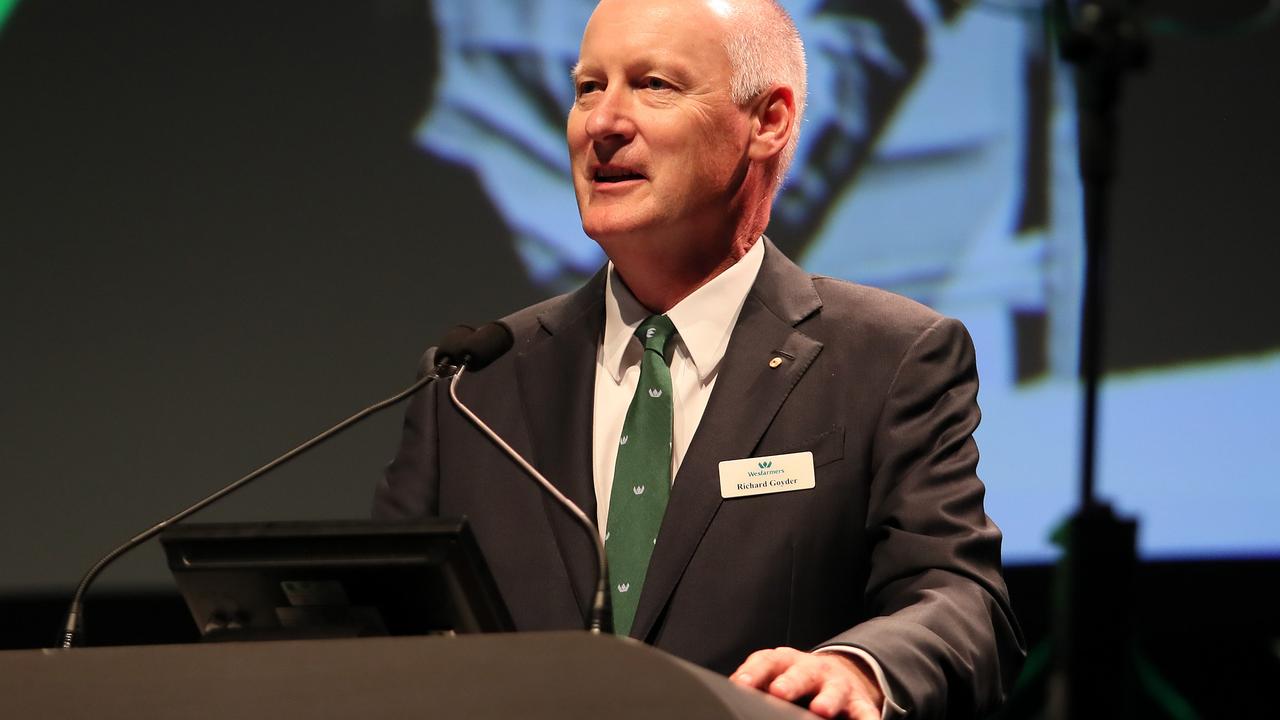Wesfarmers’ CEO says it’s now ‘virtually impossible’ to run a business from Western Australia
The impact of WA’s hard border is getting real with the CEO of the firm that owns Bunnings saying it’s now “virtually impossible” to run a company from the state.
The decision by the Western Australian government to renege on its promise to open the hard border in February is beginning to have ramifications with the executive of one of Perth’s largest companies ditching the city and moving east.
And there are fears of a further brain drain as talented people either leave WA for eastern states or decide not to move to Perth in the first place.
Rob Scott, chief executive officer of chemical to retail giant Wesfarmers – which owns Bunnings as well as other famous names – said it was now “virtually impossible” to run a business that spanned Australia from WA.
He and a number of other Wesfarmers’ top brass will now leave the state at least as long as the border remains essentially closed to give them more scope to run the sprawling conglomerate’s operations.
And Mr Scott is not the only one. Perth-based Qantas chair Richard Goyder, who previously ran Wesfarmers, has said he will leave the state “indefinitely” due to the heightened border restrictions.

Earlier this month, WA Premier Mark McGowan said the planned February 5 date to end the hard border would be scrapped due to a rise in Covid-19 cases in eastern Australia.
“It would be reckless and irresponsible to open up now. I can’t do it,” he said at the time.
The low number of people with boosters in the state was one of the reason for the delay.
“The aim is to get (third doses) up above at least 80 per cent, perhaps 90 per cent,” Mr McGowan said.
He gave no future reopening date but it’s estimated it could take several months for WA’s booster rates to get to the 80 per cent mark.
Since the Premier announced the border stand still, WA has had to fight its own Omicron outbreaks. Cases have now been recorded both in Perth as well as in remote mine sites.
Mr McGowan’s stance on borders has wide support in Western Australia, which has seen far fewer cases and shorter lockdowns than New South Wales and Victoria.
There has also now been some easing of the border restrictions. For instance, returning WA residents with “legitimate” family connections to the state can enter but only followed by 14 days quarantine.
That’s not enough for some in the business community, however, who have said the onerous restrictions are still too much.

‘Virtually impossible’ to run a major business from WA
Wesfarmers’ Mr Scott said the inability for people to travel for critical work without quarantining was having a huge impact on the firm.
“(WA) is out of step with the rest of the country, and most of the world,” Mr Scott was reported as saying in The Australian.
The Wesfarmers’ chief has said he needs to spend time away from Perth particularly in Melbourne where subsidiaries Bunnings, Kmart, Target and Officeworks are all based.
He also is keen to meet in person with Priceline pharmacy owner API which Wesfarmers wants to buy.

If he can’t get back into Perth without quarantine, Mr Scott has said he will just stay in the east.
“The uncertainty around when the border might re-open and the continuing inflexibility towards business-critical travel means that it is now virtually impossible to run a national business from Perth,” Mr Scott said.
He and other senior executives will relocate to Melbourne for an “extended period” which is expected to be until getting across the WA border becomes less burdensome.

You need to be ‘in the room,’ not on Zoom
Those concerns were echoed by Qantas chair Richard Goyder who also plans to up sticks.
“I just feel I want to take control of my life,” he told the AFR.
“In WA, I don’t have that. All my business colleagues in the east, other than restrictions that we also have here, their life is returning to normality.”
Mr Goyder said video conferencing only went so far and some business interactions needed people “in the room,” not just on Zoom.
“I know life as a politician isn’t easy, but I really feel (the border backflip) was unnecessary.”
Both Mr Goyder and Mr Scott said some restriction were unavoidable but there now needed to be a plan to reopen the state.

Some firms happy to keep the border shut
However, Wesfarmers’ frustrations are not shared by all of WA’s big corporates.
Many of the miners seem relatively happy with maintaining border controls in place if it keeps Covid-19 out of their sites.
According to the AFR, Gina Rinehart of Hancock Prospecting was in favour of the ongoing isolation. BHP and Rio Tinto are also thought to have supported the measures.
But Fortescue boss Elizabeth Gaines has broken ranks, saying this month that while the restrictions had been important in managing the outbreak, it was “disappointing” to see the reopening date delayed.
She said staff had gone interstate to see family with the expectation they would be able to return from February 5.
“Everyone’s done the right thing, they’ve followed the mandate, and people have got vaccinated,” she told the AFR.
Evolution mining boss Jake Klein told The Australian he had been unable to visit the firm’s gold mining operation based near Kalgoorlie due to the restrictions.
“It seems like in some ways deferring the inevitable by keeping it closed. Even if it is deferred it is not going to be eliminated.”
If Omicron outbreaks at mining sites continue, support for Mr McGowan from the likes of BHP may begin to wane.

Possible brain drain from WA
Mr Goyder said the border restrictions could have a profound impact on WA as a major corporate hub.
Companies like Wesfarmers, he said, encouraged people to move to Perth and put down roots.
“This is becoming increasingly difficult and is currently almost impossible, and I am concerned that this sentiment will linger,” Mr Goyder said.
“My worry is that there will be people who came here who will not stay. I worry that young people who are here and who are listening to their friends on the east coast about the freedoms they have, those people will go.”






